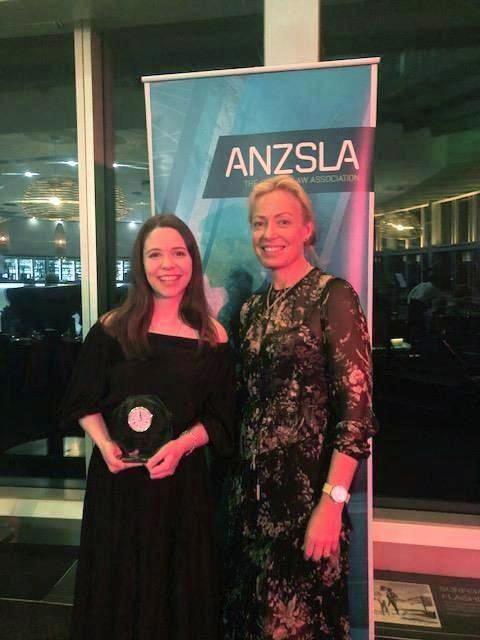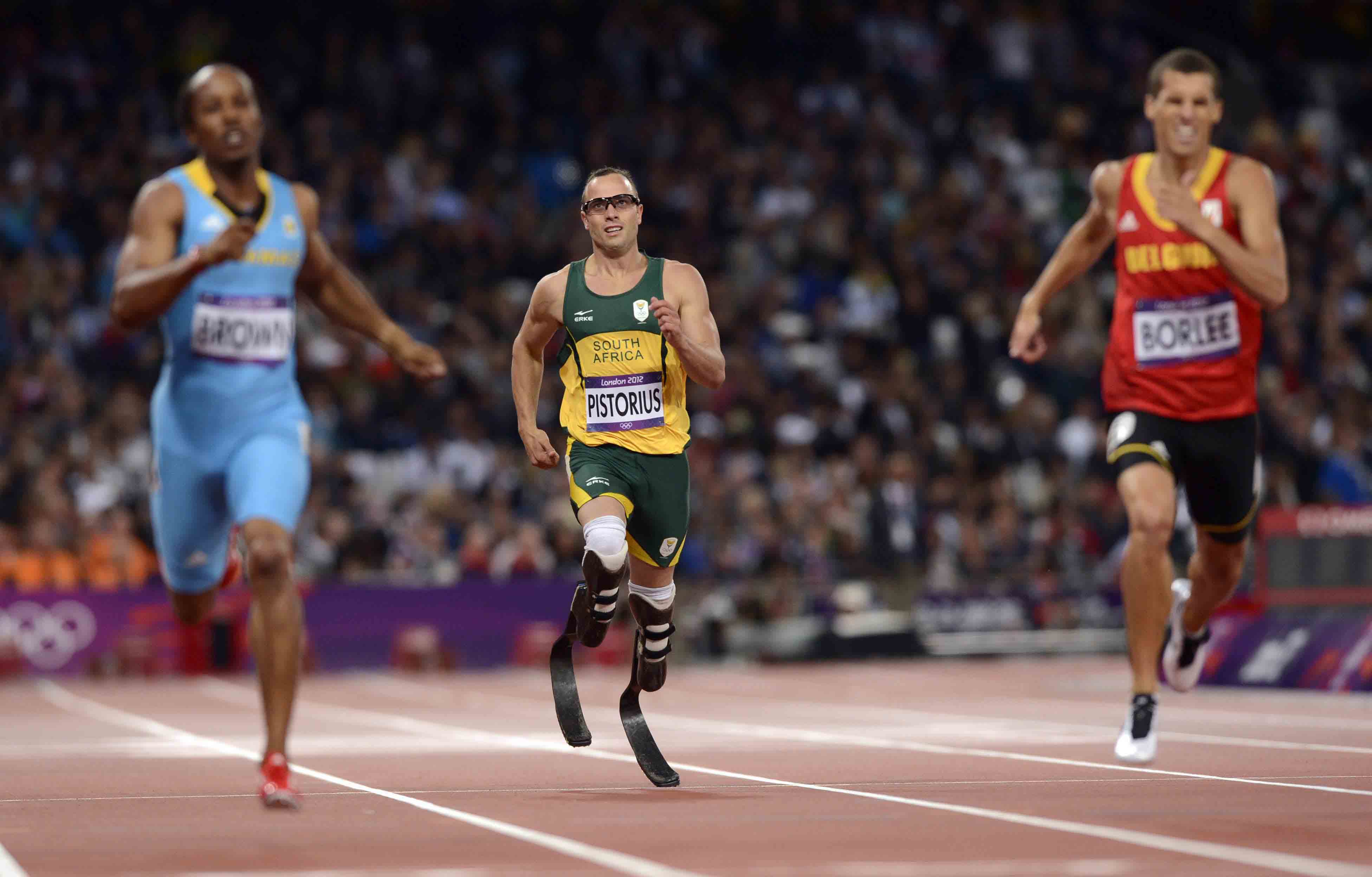As the winner of a highly competitive award in sports law research, UQ final year law student Sarah Copley shares her experience presenting her essay at the Australian and New Zealand Sports Law Association Conference and the reasons she decided to focus her research on ‘cyborg athletes’. With a Bachelor of Business Management/Laws almost under her belt, Sarah says she will remember this award as one of the proudest and most rewarding moments of her time at UQ.

The conference room is brimming. Sitting there is the legal counsel for the Australian Olympic Committee. And there is the CEO of the National Rugby League Players’ Association. In the corner is a world-leading researcher. At the front is a Paralympian. From where I stood at the lectern, I could see them all. Little old me, an undergraduate Law and Business Management student from the University of Queensland. Talk about being out of my league.
When I met Associate Professor Sarah Kelly to discuss a topic for my Advanced Research project I did not anticipate that I would receive the Paul Trisley Award for my paper and go on to present my original research at the Australian and New Zealand Sports Law Association (ANZSLA) Conference. It was the greatest honour to attend the conference, and an experience I will benefit from through my career.
I leapt at the opportunity to be supervised by Sarah – a powerhouse in sports law and marketing; a brilliant and generous person; and, much to the excitement of this avid football fan, a Board member at the Brisbane Lions. We discussed the current controversies in sports law. The issues of fair play, integrity, diversity and inclusion. My mind latched onto the idea of ‘cyborg athletes’. Developments in technology have allowed disabled athletes to compete in their chosen sport. The most (in)famous example is Oscar Pistorius who ran using two prosthetic blades. What happens when use of this assistive technology surpasses what the human body can do? Is that already a reality? And what does this mean for sport? So, a research topic began to take shape.

As a law student, I explored this issue through a legal lens. The beauty of sports law is that it touches on so many other disciplines and fields of law. For example, my topic covered international human rights law, domestic law such as anti-discrimination legislation and the rules of sport themselves. My research looked at how to regulate the use of assistive technology by disabled athletes. I asked the question, at what point does a technology, which is essential for a person with a disability to perform in their sport, create an unfair advantage?
There are no easy answers on how to strike a balance between fairness and inclusivity when determining the eligibility of a disabled athlete to compete alongside able-bodied athletes. This was something my research had to grapple with. Perhaps one way to address the problem is to ask whether the athlete using the assistive technology is playing the same game as an athlete without it? This sort of approach requires a lot more research in the sports science space.
Thanks to advancements in technology and evolving social standards, the face of sport is constantly changing. The rules tend to struggle to keep up with this change. There is never a dull day in sports law because we will always be asking how does this new situation sit with the existing law, and how can we make it better. This is the work that members of the Australian and New Zealand Sports Law Association are doing every day. Standing at the lectern in front of these lawyers, administrators and academics who have a passion and expertise in sport, sharing my ideas on how to reform the law, will forever be my proudest achievement of my time at UQ.
The Paul Trisley Award is made to a person who has never presented at an ANZSLA event or been previously published in the ANZSLA Journal, who, in the opinion of the judges, produces the best paper. The judging takes into account the paper's accuracy, originality, practical value to sports administrators and lawyers, and its academic quality.



